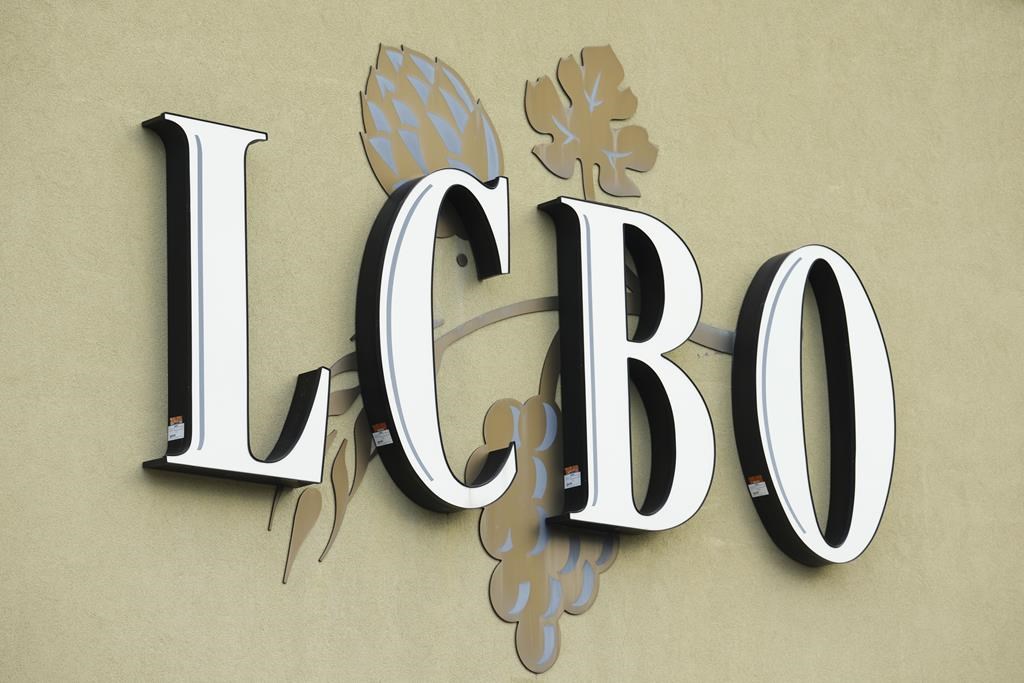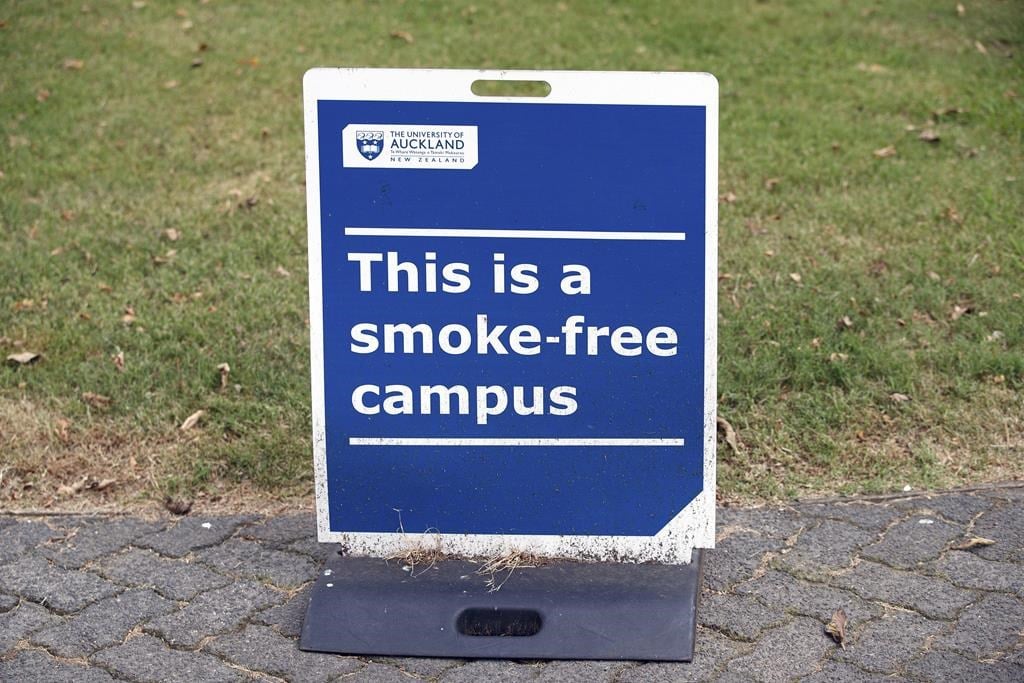Best credit cards for recent grad students in Canada
Updated: May 08, 2024
Congratulations, today is your day. You're off to great places. You're off and away. Dr. Seuss had a way with words, and in 2020, his estate earned $33 million before taxes1, so maybe he was good with money, too.
For new graduates, recent graduates or even if you're heading to post-grad, 51% of Canadian students with Bachelor's degrees, according to Statistics Canada, are in debt. Of those surveyed, 48% of students owe over $25,000, with the average debt at graduation being $30,600 from government and non-government sources2 (like credit cards).
Fortunately, 46% of graduates had non-government debt paid off at the time of the interview (I assume for their first job after graduation).
But how?
One effective strategy to manage high interest debt is to consider a balance transfer credit card. This type of card allows you to transfer your existing debt to it, often at a low interest rate, sometimes even 0% for 6-12 months, depending on the card you choose. This can help you save on interest and pay off your debt faster.
Then, there are those of you who aren't in debt, have landed a prestigious job, are looking to climb the ladder of financial stability and enjoy the perks that come with it.
You are no longer beholden to your University credit card, which may not be rewarding your new-grad level of creditworthiness.
For that, we've assembled a list of the best credit cards for grad students and new grads.
Best credit card for new grads: Cash back
CIBC Dividend® Visa Infinite
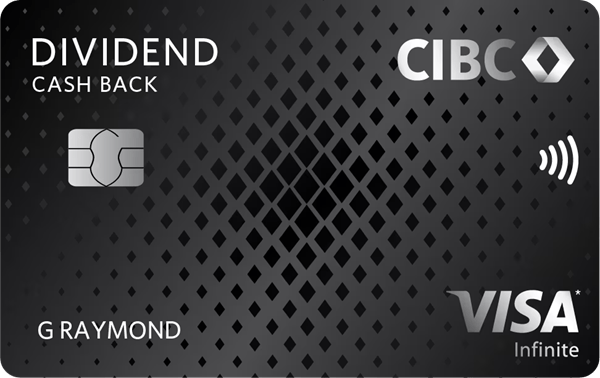
Get a first-year annual fee rebate and earn 10% cash back welcome bonus of up to $250!†
4%
Earn 4% cash back on gas, EV charging, and groceries.
2%
Earn 2% cash back on dining, transportation, recurring payments or bills.
1%
Earn 1% cash back on all other purchases with no limit.
10 cents
Save 10 cents per litre with CIBC and Journie Rewards (Ultramar, Chevron, Pioneer, Fas Gas)
Earn 4% cash back on gas, EV charging, and groceries.
4%
Earn 2% cash back on dining, transportation, recurring payments or bills.
2%
Earn 1% cash back on all other purchases with no limit.
1%
Save 10 cents per litre with CIBC and Journie Rewards (Ultramar, Chevron, Pioneer, Fas Gas)
10 cents
20.99%
Purchase APR non-Quebec residents†
22.99%
Balance Transfer Rate non-Quebec residents†
22.99%
Cash Advance APR non-Quebec residents†
$120
Annual Fee First year rebated. Each additional card is $30 per year, max 3.
Purchase APR
20.99%
Balance Transfer Rate
22.99%
Cash Advance APR
22.99%
Annual Fee
$120
Good
Recommended Credit Score
$60,000
Required Annual Personal Income
$100,000
Required Annual Household Income
Recommended Credit Score
Good
Required Annual Personal Income
$60,000
Required Annual Household Income
$100,000
Pros
-
Very high cash back rates on eligible groceries and gas and electric vehicle charging
-
Lucrative welcome offer
-
Flexible cash back redemption policy
-
Premium Visa Infinite benefits†
-
No limit on the total cash back you can earn†
Cons
-
Maximum annual spending limits in accelerated cash back
-
High-ish annual fee
-
Mid-level income requirement
4%
Earn 4% cash back on gas, EV charging, and groceries.
2%
Earn 2% cash back on dining, transportation, recurring payments or bills.
1%
Earn 1% cash back on all other purchases with no limit.
10 cents
Save 10 cents per litre with CIBC and Journie Rewards (Ultramar, Chevron, Pioneer, Fas Gas)
Earn 4% cash back on gas, EV charging, and groceries.
4%
Earn 2% cash back on dining, transportation, recurring payments or bills.
2%
Earn 1% cash back on all other purchases with no limit.
1%
Save 10 cents per litre with CIBC and Journie Rewards (Ultramar, Chevron, Pioneer, Fas Gas)
10 cents
20.99%
Purchase APR non-Quebec residents†
22.99%
Balance Transfer Rate non-Quebec residents†
22.99%
Cash Advance APR non-Quebec residents†
$120
Annual Fee First year rebated. Each additional card is $30 per year, max 3.
Purchase APR
20.99%
Balance Transfer Rate
22.99%
Cash Advance APR
22.99%
Annual Fee
$120
Good
Recommended Credit Score
$60,000
Required Annual Personal Income
$100,000
Required Annual Household Income
Recommended Credit Score
Good
Required Annual Personal Income
$60,000
Required Annual Household Income
$100,000
Pros
-
Very high cash back rates on eligible groceries and gas and electric vehicle charging
-
Lucrative welcome offer
-
Flexible cash back redemption policy
-
Premium Visa Infinite benefits†
-
No limit on the total cash back you can earn†
Cons
-
Maximum annual spending limits in accelerated cash back
-
High-ish annual fee
-
Mid-level income requirement
If you were using Money.ca’s pick for best student credit card, the BMO Cash Back for students, you may get automatically updated to the non-student version, essentially the same credit card. Unfortunately, you can’t capitalize on its promotional balance transfer offer, nor can you simply transfer the balance to the “adult” version of the card.
So, switching to the best cash back credit card in Canada, the CIBC Dividend Visa Infinite has a $120 annual fee.
To qualify, you’ll need to make at least $60,000 and have a “good” credit score of at least 660.
Read more: Best credit cards for good credit scores
With the CIBC Dividend Visa Infinite, the cap on your grocery spending is $20,000, meaning you’ll continue to earn cash back far more than BMO’s limit of $500 per statement cycle period.
Like BMO, you can redeem your cash back any time, so long as you have a minimum of $25 available. BMO allows you to deposit money into your BMO InvestorLine account or your BMO Chequing and Savings account, whereas CIBC issues a statement credit. With CIBC, you can also request cashback be paid out only once a year (as an adult with two kids, I’ll say post-Christmas may be ideal, but you do you).
Is it worth the $120 annual fee? Let’s do some cash back credit card math.
| Dollar values (for estimation purposes only) | BMO Student Cash Back Mastercard | CIBC Dividend Visa Infinite |
|---|---|---|
| Annual fee | $0 | $120 |
| Annual grocery spend: $6,000 | At 3%: $180 | At 4%: $240 |
| Recurring bills, streaming services, subscriptions and utilities: $1,200 | At 1%: $12 | At 2%: $24 |
| Gas or EV charging spend: $2,400 | At 0.5%: $12 | At 3%: $48 |
| Transportation (e.g. rideshare, transit): $1,000 | At 0.5%: $5 | At 2%: $20 |
| Dining (eats & drinks): $1,800 | At 0.5%: $9 | At 2%: $36 |
| All other purchases: $12,000 | At 0.5%: $60 | At 1%: $120 |
| Total cash back earned | $278 | $488 |
| Less annual fee | $0 | $120 |
| Is it worth it? | $278 | $368 |
Other cash back credit cards for recent grads we love
BMO CashBack® World Elite® Mastercard
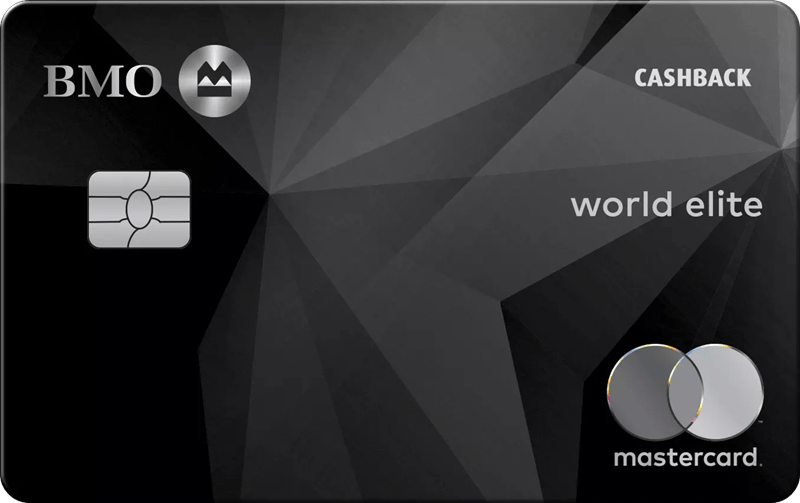
$120 Annual Fee
Excellent Recommended Credit Score
$80,000 Required Annual Personal Income
SimplyCash® Card from American Express
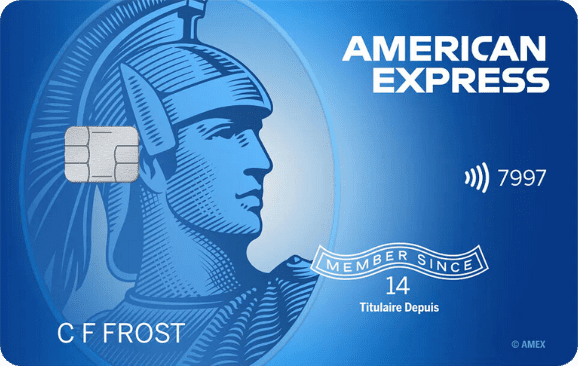
$0 Annual Fee
Good Recommended Credit Score
$0 Required Annual Personal Income
TD Cash Back Visa Infinite* Card
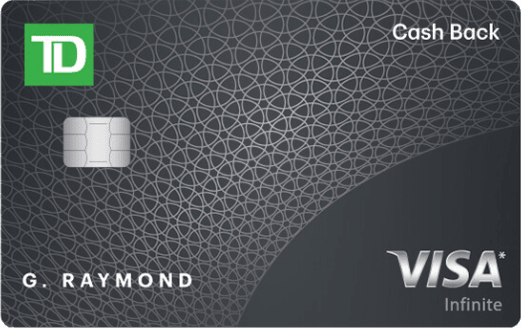
$139 Annual Fee
Excellent Recommended Credit Score
$60,000 Required Annual Personal Income
Best credit card for new grads: Travel
American Express Cobalt® Card
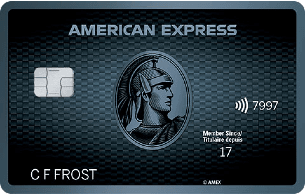
Earn up to 15,000 Membership Rewards points
5x
Earn 5 times he points on eligible eats and drinks in Canada, including groceries and food delivery. Spend cap applies.
3x
Earn 3 times the points on eligible streaming subscriptions in Canada.
2x
Get 2 times the points on eligible ride shares, transit & gas in Canada.
1x
Earn 1 additional point on eligible hotel and car rental bookings via American Express Travel Online
1x
Earn 1 point for every $1 in Card purchases everywhere else
$100 USD
Get up to $100 USD hotel credit to use on amenities when charged to the room for a stay of 2 or more consecutive nights through The Hotel Collection from American Express Travel.
Earn 5 times he points on eligible eats and drinks in Canada, including groceries and food delivery. Spend cap applies.
5x
Earn 3 times the points on eligible streaming subscriptions in Canada.
3x
Get 2 times the points on eligible ride shares, transit & gas in Canada.
2x
Earn 1 additional point on eligible hotel and car rental bookings via American Express Travel Online
1x
Earn 1 point for every $1 in Card purchases everywhere else
1x
Get up to $100 USD hotel credit to use on amenities when charged to the room for a stay of 2 or more consecutive nights through The Hotel Collection from American Express Travel.
$100 USD
21.99%
Purchase APR on purchases
21.99%
Cash Advance APR
$155.88
Annual Fee 12.99/mo
2.50%
Foreign Transaction Fee
Purchase APR
21.99%
Cash Advance APR
21.99%
Annual Fee
$155.88
Foreign Transaction Fee
2.50%
Fair
Recommended Credit Score
$0
Required Annual Personal Income
$0
Required Annual Household Income
Recommended Credit Score
Fair
Required Annual Personal Income
$0
Required Annual Household Income
$0
Pros
-
High earn rates (up to 5% return on spending!)
-
Flexible month-by-month fee structure
-
Free supplementary cards
-
1:1 points transfer with selected hotels, airlines and frequent flyer programs
Cons
-
Accelerated earn rates only apply to purchases in Canada (not to purchases made abroad)
-
Amex has a more limited merchant acceptance rate than Visa and Mastercard
-
Slightly higher than average annual fee
5x
Earn 5 times he points on eligible eats and drinks in Canada, including groceries and food delivery. Spend cap applies.
3x
Earn 3 times the points on eligible streaming subscriptions in Canada.
2x
Get 2 times the points on eligible ride shares, transit & gas in Canada.
1x
Earn 1 additional point on eligible hotel and car rental bookings via American Express Travel Online
1x
Earn 1 point for every $1 in Card purchases everywhere else
$100 USD
Get up to $100 USD hotel credit to use on amenities when charged to the room for a stay of 2 or more consecutive nights through The Hotel Collection from American Express Travel.
Earn 5 times he points on eligible eats and drinks in Canada, including groceries and food delivery. Spend cap applies.
5x
Earn 3 times the points on eligible streaming subscriptions in Canada.
3x
Get 2 times the points on eligible ride shares, transit & gas in Canada.
2x
Earn 1 additional point on eligible hotel and car rental bookings via American Express Travel Online
1x
Earn 1 point for every $1 in Card purchases everywhere else
1x
Get up to $100 USD hotel credit to use on amenities when charged to the room for a stay of 2 or more consecutive nights through The Hotel Collection from American Express Travel.
$100 USD
21.99%
Purchase APR on purchases
21.99%
Cash Advance APR
$155.88
Annual Fee 12.99/mo
2.50%
Foreign Transaction Fee
Purchase APR
21.99%
Cash Advance APR
21.99%
Annual Fee
$155.88
Foreign Transaction Fee
2.50%
Fair
Recommended Credit Score
$0
Required Annual Personal Income
$0
Required Annual Household Income
Recommended Credit Score
Fair
Required Annual Personal Income
$0
Required Annual Household Income
$0
Pros
-
High earn rates (up to 5% return on spending!)
-
Flexible month-by-month fee structure
-
Free supplementary cards
-
1:1 points transfer with selected hotels, airlines and frequent flyer programs
Cons
-
Accelerated earn rates only apply to purchases in Canada (not to purchases made abroad)
-
Amex has a more limited merchant acceptance rate than Visa and Mastercard
-
Slightly higher than average annual fee
The tricky thing with the Cobalt is that people assume Amex isn’t accepted everywhere. However, that narrative changed after Amex launched its “Shop small” campaign to support small businesses.
Read more: Where is Amex accepted in Canada
Beyond being the winner of the best credit card in Canada for 2024, the Cobalt is loved for its high earning rate on food and drinks in Canada, including groceries and food delivery. You’ll also earn better than average rates on subscriptions (e.g., Netflix, Spotify), rideshares, transit and gas. It’s sure to fit your new grad lifestyle.
And all those reward points can be redeemed for great rewards.
American Express Membership Rewards points transfer 1:1 with Aeroplan, British Airways, and Hilton. You can also transfer them to Marriott Bonvoy, Asia Miles and Air France. As well, you can book directly with Amex travel online.
A colleague at work uses her points to redeem for statement credits whenever she wants a coffee but doesn’t feel right about spending the money that day.
While its annual fee is higher, it is divided into monthly payments, making it much more digestible. If you love this card but don’t have the income qualifications, don’t worry—with Amex, there are no income requirements.
Best credit card for 22-year-olds
Scotia Momentum® Visa* Card
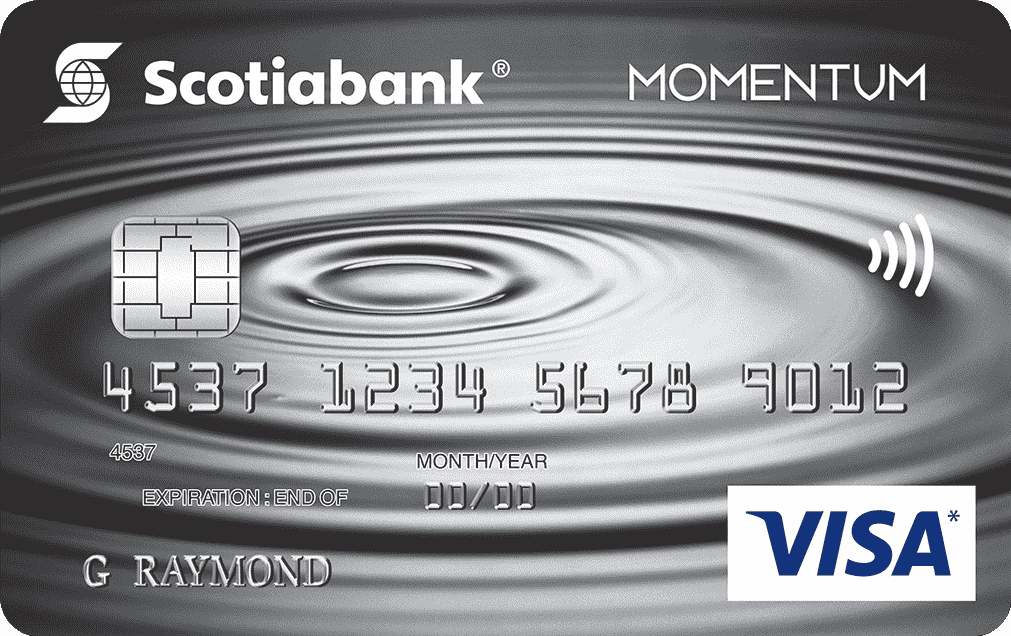
Fair
about new welcome offers by email
2%
cash back for every $1 you spend on all eligible gas stations, grocery store, drug store purchases and recurring bill payments.
1%
cash back on all other eligible purchases.
25%
savings off base rates at participating AVIS locations and at participating Budget locations in North America.
90
days of purchase security on most items purchased with your card.
1
extra year on top of manufacturer's warranty.
cash back for every $1 you spend on all eligible gas stations, grocery store, drug store purchases and recurring bill payments.
2%
cash back on all other eligible purchases.
1%
savings off base rates at participating AVIS locations and at participating Budget locations in North America.
25%
days of purchase security on most items purchased with your card.
90
extra year on top of manufacturer's warranty.
1
19.99%
Purchase APR
22.99%
Balance Transfer Rate
22.99%
Cash Advance APR
$39
Annual Fee $15 for each supplementary card
Purchase APR
19.99%
Balance Transfer Rate
22.99%
Cash Advance APR
22.99%
Annual Fee
$39
Fair
Recommended Credit Score
Recommended Credit Score
Fair
2%
cash back for every $1 you spend on all eligible gas stations, grocery store, drug store purchases and recurring bill payments.
1%
cash back on all other eligible purchases.
25%
savings off base rates at participating AVIS locations and at participating Budget locations in North America.
90
days of purchase security on most items purchased with your card.
1
extra year on top of manufacturer's warranty.
cash back for every $1 you spend on all eligible gas stations, grocery store, drug store purchases and recurring bill payments.
2%
cash back on all other eligible purchases.
1%
savings off base rates at participating AVIS locations and at participating Budget locations in North America.
25%
days of purchase security on most items purchased with your card.
90
extra year on top of manufacturer's warranty.
1
19.99%
Purchase APR
22.99%
Balance Transfer Rate
22.99%
Cash Advance APR
$39
Annual Fee $15 for each supplementary card
Purchase APR
19.99%
Balance Transfer Rate
22.99%
Cash Advance APR
22.99%
Annual Fee
$39
Fair
Recommended Credit Score
Recommended Credit Score
Fair
A cash-back card that gives you a decent rewards rate on everyday purchases like gas, groceries, drugstores and recurring bills, a low annual fee of $39, and a low personal income requirement of $12,000 is a sweet credit card now that you’ve graduated.
The bonus is they also have a balance transfer offer of 2.99% for six months, with a transfer fee of 0%.
Best credit card for grad students who want to be smarter about money
EQ Bank Card

3
Fair
about new welcome offers by email
0.5%
cash back on purchases
2.5%
interest on your balance
cash back on purchases
0.5%
interest on your balance
2.5%
0.00%
Purchase APR
$0
Annual Fee
0.00%
Foreign Transaction Fee
Purchase APR
0.00%
Annual Fee
$0
Foreign Transaction Fee
0.00%
Fair
Recommended Credit Score
$0
Required Annual Personal Income
$0
Required Annual Household Income
Recommended Credit Score
Fair
Required Annual Personal Income
$0
Required Annual Household Income
$0
0.5%
cash back on purchases
2.5%
interest on your balance
cash back on purchases
0.5%
interest on your balance
2.5%
0.00%
Purchase APR
$0
Annual Fee
0.00%
Foreign Transaction Fee
Purchase APR
0.00%
Annual Fee
$0
Foreign Transaction Fee
0.00%
Fair
Recommended Credit Score
$0
Required Annual Personal Income
$0
Required Annual Household Income
Recommended Credit Score
Fair
Required Annual Personal Income
$0
Required Annual Household Income
$0
If you're looking for the best credit card post-graduation but still don't have the income qualifier most premium credit cards want to see, we figure the smart choice is the EQ Bank card.
It's a prepaid Mastercard, so you're not building credit, but the card has no fees and earns 0.5% cash back on all purchases. They'll reimburse you for any ATM withdrawals you make with the card.
While you must switch banks, EQ Bank is incredible for its customer service and high interest rates. You'll earn 2.5% cash back on your balance and an additional 1.5% if you direct deposit your pay.
While you should start investing your money in the stock market, a 4% return on your money ain't too shabby. It would help if you still began to contribute a few bucks with a robo-advisor to get you started.
Read more: Best robo advisors in Canada
Best credit card for grad students who want to pay off their student credit card debt
MBNA True Line Mastercard
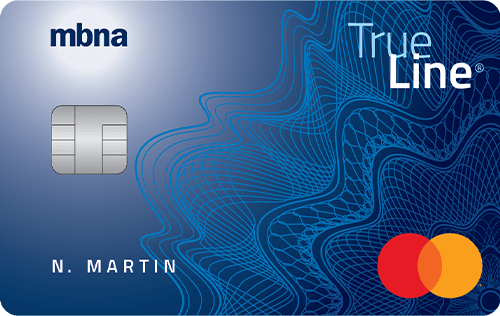
Get a 0% promotional annual interest rate (“AIR”)† for 12 months on balance transfers✪ completed within 90 days of account opening.
Expires
Jan 1, 2025
0%
New cardholders can enjoy a 0% promotional annual interest rate† (a 3% transfer fee applies) for 12 months on any balance transfer✪ completed within 90 days of opening the account
New cardholders can enjoy a 0% promotional annual interest rate† (a 3% transfer fee applies) for 12 months on any balance transfer✪ completed within 90 days of opening the account
0%
12.99%
Purchase APR
12.99%
Balance Transfer Rate
24.99%
Cash Advance APR
$0
Annual Fee
Purchase APR
12.99%
Balance Transfer Rate
12.99%
Cash Advance APR
24.99%
Annual Fee
$0
Good
Recommended Credit Score
Recommended Credit Score
Good
Pros
-
Solid welcome offer: 12 months of 0% APR† on balance transfers✪ made within the first 90 days (3% transfer fee applies)
-
No annual fee or minimum income requirement
-
Low standard interest rate of 12.99% for all new purchases charged to the card
-
Some extra perks like fraud protection and a discount on car rentals
Cons
-
3% balance transfer fee is comparatively high
-
Very high cash advance interest rate of 24.99%
-
No insurance benefits
-
Can’t transfer a balance owed to either MBNA or TD
0%
New cardholders can enjoy a 0% promotional annual interest rate† (a 3% transfer fee applies) for 12 months on any balance transfer✪ completed within 90 days of opening the account
New cardholders can enjoy a 0% promotional annual interest rate† (a 3% transfer fee applies) for 12 months on any balance transfer✪ completed within 90 days of opening the account
0%
12.99%
Purchase APR
12.99%
Balance Transfer Rate
24.99%
Cash Advance APR
$0
Annual Fee
Purchase APR
12.99%
Balance Transfer Rate
12.99%
Cash Advance APR
24.99%
Annual Fee
$0
Good
Recommended Credit Score
Recommended Credit Score
Good
Pros
-
Solid welcome offer: 12 months of 0% APR† on balance transfers✪ made within the first 90 days (3% transfer fee applies)
-
No annual fee or minimum income requirement
-
Low standard interest rate of 12.99% for all new purchases charged to the card
-
Some extra perks like fraud protection and a discount on car rentals
Cons
-
3% balance transfer fee is comparatively high
-
Very high cash advance interest rate of 24.99%
-
No insurance benefits
-
Can’t transfer a balance owed to either MBNA or TD
You can’t beat this balance transfer offer: 0% interest for the first 12 months, with no annual fee.
While you’ll have to pay a 3% balance transfer fee, it’s small relative to the amount you’ll save if you can’t seem to get ahead of your student debt.
Let’s say you owe $4,000. You’ll pay $120 to transfer your existing balance to MBNA and then pay $333.33 per month for the next 12 months, and your balance will be gone. Say hello to being debt-free (at least for your credit card). This no-interest card for 12 months is a breath of fresh air for anyone struggling with debt.
Scotiabank Value Visa
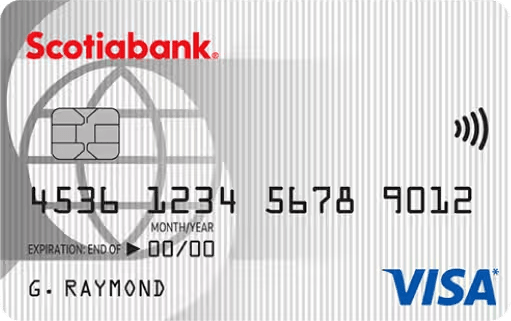
$29 Annual Fee
Fair Recommended Credit Score
$0 Required Annual Personal Income
BMO AIR MILES®† MasterCard®*
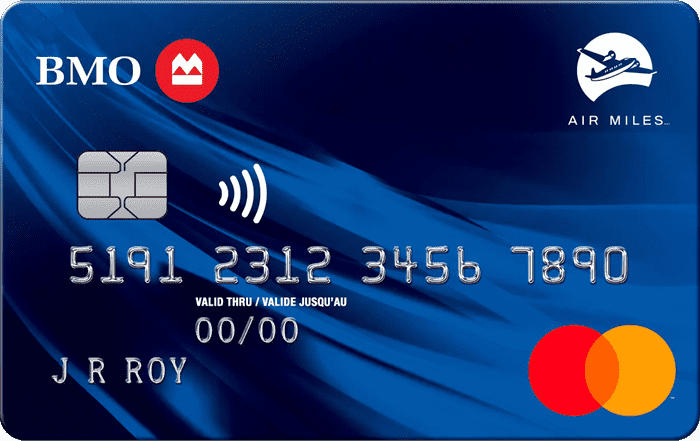
$0 Annual Fee
Good Recommended Credit Score
$15,000 Required Annual Personal Income
BMO Preferred Rate Mastercard®*
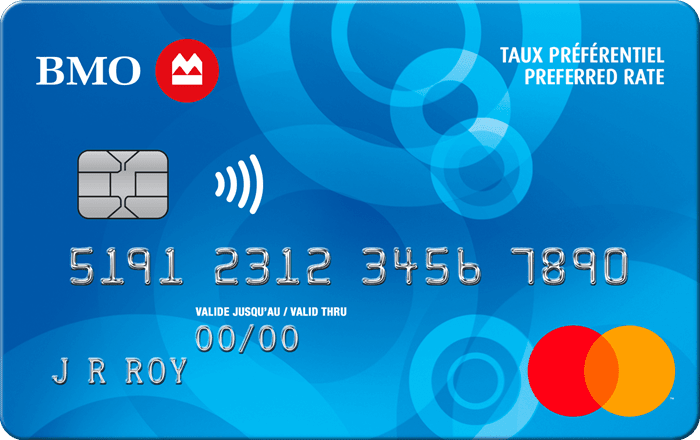
$29 Annual Fee
Good Recommended Credit Score
$0 Required Annual Personal Income
Best credit card for recent college graduates with no credit
Neo Secured Credit Card
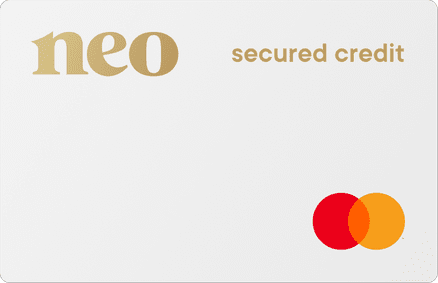
$25 customer sign up bonus welcome offer
15%
Up to 15% on first new purchases with Neo partners
5%
With Neo Partners
1%-3%
on gas and groceries
3%-4%
Streaming, ridesharing, and food delivery services
2%-3%
With retail partners
0.5%
On everything else
Up to 15% on first new purchases with Neo partners
15%
With Neo Partners
5%
on gas and groceries
1%-3%
Streaming, ridesharing, and food delivery services
3%-4%
With retail partners
2%-3%
On everything else
0.5%
19.99% - 26.99%
Variable APR
24.99% - 28.99%
Cash Advance APR Plus a $2.50 fee in Canada, $5 fee anywhere else
$0
Annual Fee Option to pay $4.99/month for premium membership to unlock higher cash back rewards
Variable APR
19.99% - 26.99%
Cash Advance APR
24.99% - 28.99%
Annual Fee
$0
Poor
Recommended Credit Score
$0
Required Annual Personal Income
$0
Required Annual Household Income
Recommended Credit Score
Poor
Required Annual Personal Income
$0
Required Annual Household Income
$0
Pros
-
No annual fee
-
Low minimum security deposit
-
Cash back rewards on purchases
-
Instant approval regardless of credit score
Cons
-
Only reports to TransUnion
-
High APR range
15%
Up to 15% on first new purchases with Neo partners
5%
With Neo Partners
1%-3%
on gas and groceries
3%-4%
Streaming, ridesharing, and food delivery services
2%-3%
With retail partners
0.5%
On everything else
Up to 15% on first new purchases with Neo partners
15%
With Neo Partners
5%
on gas and groceries
1%-3%
Streaming, ridesharing, and food delivery services
3%-4%
With retail partners
2%-3%
On everything else
0.5%
19.99% - 26.99%
Variable APR
24.99% - 28.99%
Cash Advance APR Plus a $2.50 fee in Canada, $5 fee anywhere else
$0
Annual Fee Option to pay $4.99/month for premium membership to unlock higher cash back rewards
Variable APR
19.99% - 26.99%
Cash Advance APR
24.99% - 28.99%
Annual Fee
$0
Poor
Recommended Credit Score
$0
Required Annual Personal Income
$0
Required Annual Household Income
Recommended Credit Score
Poor
Required Annual Personal Income
$0
Required Annual Household Income
$0
Pros
-
No annual fee
-
Low minimum security deposit
-
Cash back rewards on purchases
-
Instant approval regardless of credit score
Cons
-
Only reports to TransUnion
-
High APR range
A secured card helps you build credit. The Neo Secured card has no annual fee and earns cash back on gas and groceries, streaming ridesharing, and food delivery services. In their app, they educate you about money and help you manage your money, too—all for no annual fee.
Conclusion
It’s time to dump your university credit card and step up into the rewards game. Make your friends jealous, whether you’re jet-setting around the world, earning points at restaurants, or paying off your student debt faster.
FAQs

Tyler Wade has worked in personal finance for over 5 years writing for brands like Ratehub, Forbes, KOHO, and now Money.ca.
Investing Basics
Disclaimer
The content provided on Money.ca is information to help users become financially literate. It is neither tax nor legal advice, is not intended to be relied upon as a forecast, research or investment advice, and is not a recommendation, offer or solicitation to buy or sell any securities or to adopt any investment strategy. Tax, investment and all other decisions should be made, as appropriate, only with guidance from a qualified professional. We make no representation or warranty of any kind, either express or implied, with respect to the data provided, the timeliness thereof, the results to be obtained by the use thereof or any other matter.
